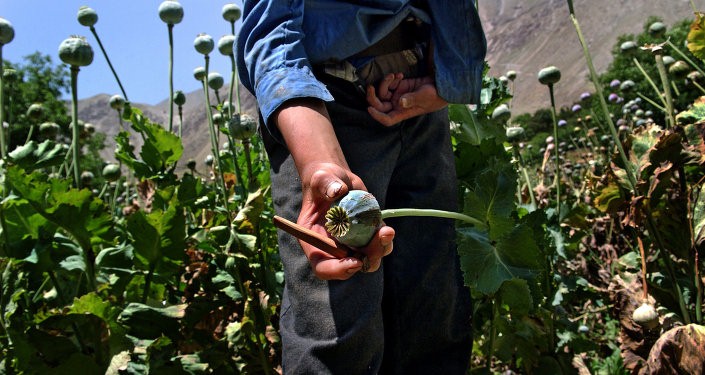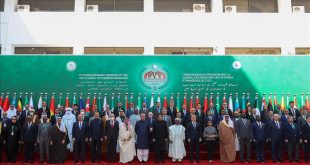Anti-narcotics strategies of the government are drawn-out and had fallen far short of its goals. The teetering campaigns against opiates will continue to traumatize the nation. At such a stage when international community feel embarrassed, particularly the neighboring states, statement of the minister of counter narcotics, Salamat Azimi, is quite disappointing. Azimi the other day projected a gloomy picture. He said that officials never fulfilled the pledged programs in the past 14 years to subdue narcotics. The minister just lamented over increase in opium production but dint not point a way out and strategy.
Last year, mushroom growth in cultivation of poppy was observed in the country. According to a report of the UN Office on Drugs and Crimes (UNODC), poppy was harvested on nearly 224,000 hectares in 2014. The figures show a staggering seven percent increase compared to 2013. Despite efforts of the international partners and presence of the US-led allied troops in the restive provinces, poppy remained the most favorite crop of growers in Kandahar, Helmand, Nimroz, Farah, Nangarhar, Zabul, Badakhshan, and Badghis provinces, where the Taliban and other insurgent groups pose serious threats. On and off attacks on the military and civilian installations have become a routine job of the Taliban where they have strong presence. Looking at the UNODC’s report published last year, it is clear that situation is very depressing as only 15 provinces are poppy-free. Helmand and Kandahar are top in the list of poppy cultivating provinces, though, British and American troops were stationed there, not far from the poppy fields. As per estimates around $7 billion dollars were spent alone by the United States to support the Afghan government in anti-narcotics campaigns.
Unfortunately, the financial and material assistance was wasted as corruption and mismanagement exist in bones of the system. Though, officials link the increase in poppy cultivation with uncertain law and order situation, but the data sketches a picture that is quite different from the one being projected by the narcotics ministry and other relevant organizations. Opium produced in Afghanistan accounts for 80 percent of the world production, to be valued at $60 billion. As a matter of fact, the militant groups receive an estimated $100 to $200 million per year from the opium trade. Media are clueless how to trace the remaining $59.8 billion. However, it is clear that corruption has strong bond with drugs production. Corruption not only hampers the anti-narcotics drives, but also makes the illicit drugs trade very lucrative. Heroin, opium and hashish are as much common as corruption because they are available even in prisons.
Looking at the overall picture, there is no second opinion that without fighting graft effectively and at the grass-root level, we cannot get rid of narcotics. The frightening figures of the UNODC and the statement of the counter narcotics minister must be a dig in the rib of the government to devise such a mechanism that effectively deals with this monstrous challenge and make the anti-narcotics drives fruitful.
 Afghanistan Times
Afghanistan Times




